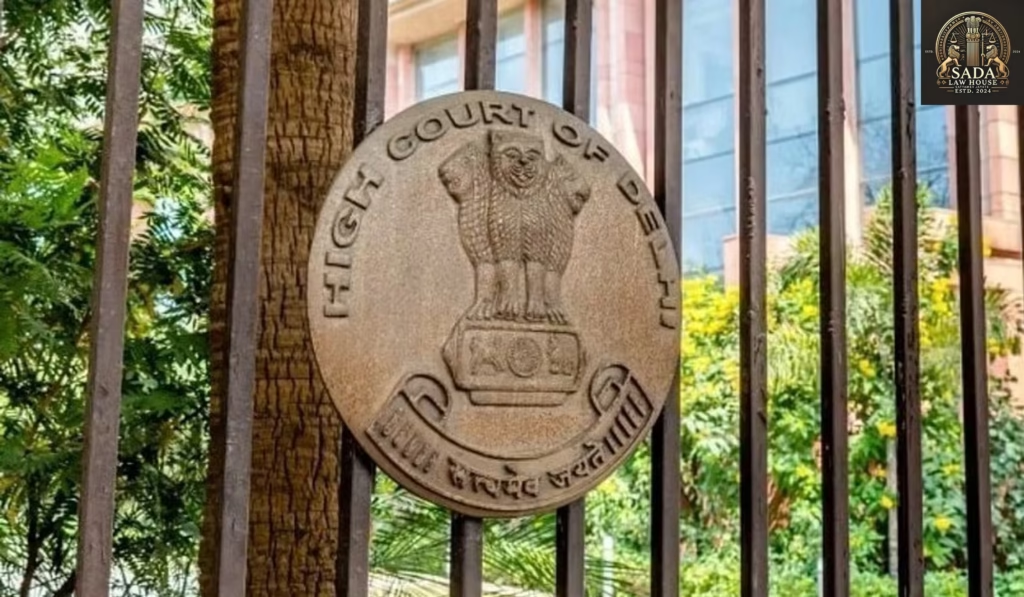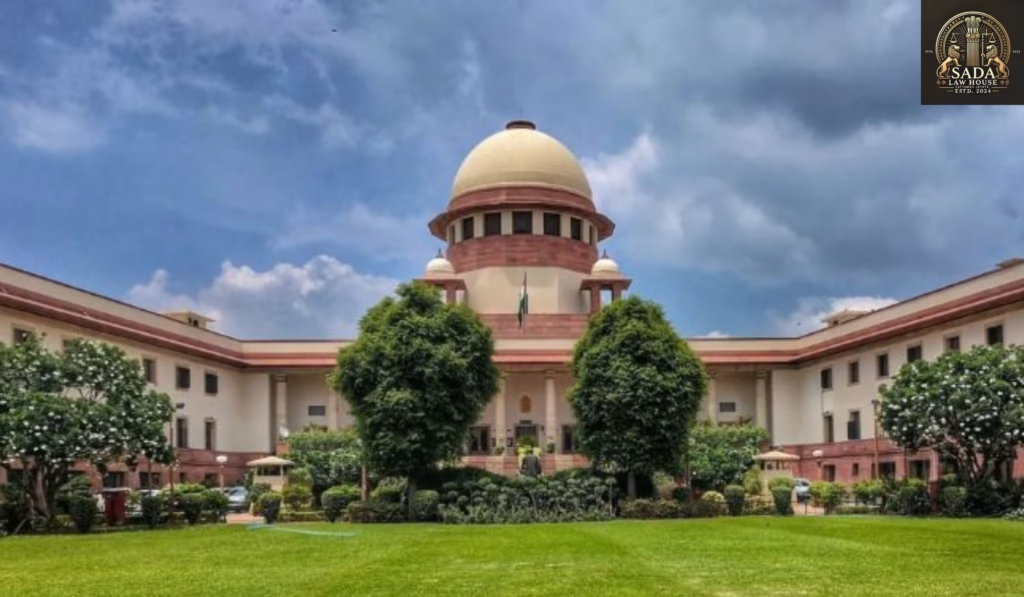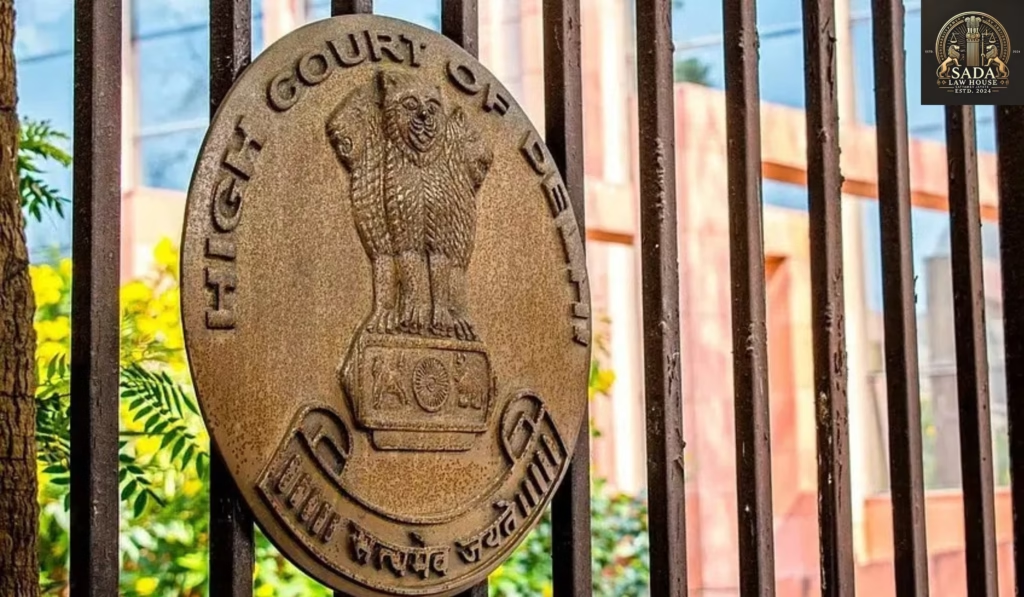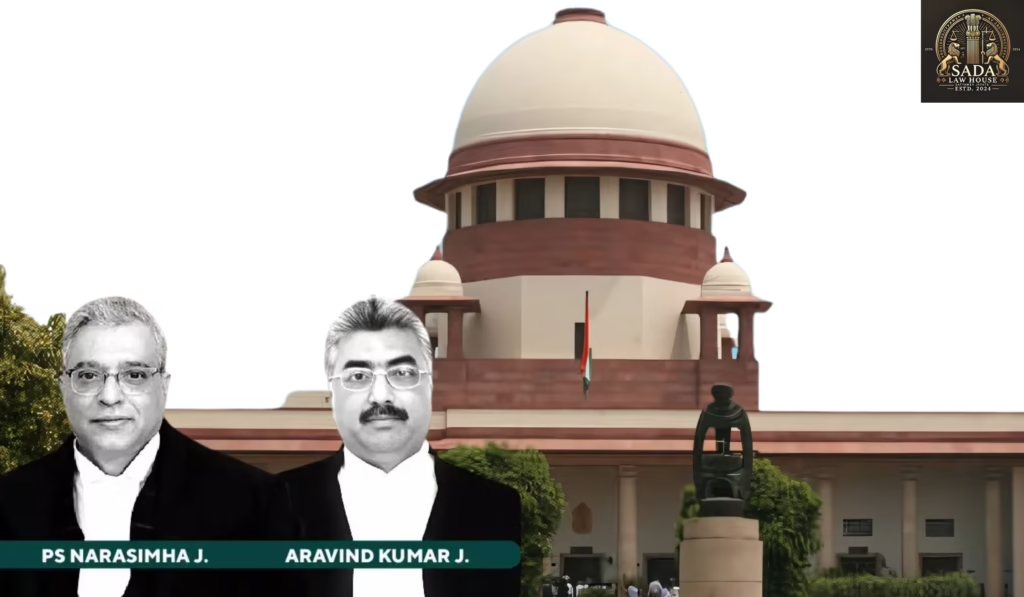Delhi High Court Rejects PIL Over Illegal Construction Near Mehrauli Gurdwara, Cites Lack of Locus Standi
Trending Today Delhi High Court Rejects PIL Over Illegal Construction Near Mehrauli Gurdwara, Cites Lack of Locus Standi Supreme Court Directs High Courts to Regularize Court Managers as Permanent Staff Delhi High Court Urges Swift COVID-19 Testing Guidelines to Tackle Infection Surge Supreme Court Clarifies Section 102(3) CrPC: Delay in Reporting Seizure Does Not Invalidate It – Shento Varghese v. Julfikar Husen (2024) Supreme Court Rules Bail Cancellation Requires Just Cause, Protects Personal Liberty Supreme Court Issues Notice on Son’s Plea Against Assam Police for Illegal Detention and Deportation to Bangladesh Woman Faces Criminal Charges for Concealing ₹10 Lakh in Divorce Settlement in Delhi NEET-PG 2025 Postponed: Supreme Court Directs Single-Shift Exam for Transparency and Fairness Allahabad High Court Upholds ₹273.5 Crore GST Penalty on Patanjali Ayurved Kamal Haasan’s “Kannada from Tamil” Comment Sparks Legal Row and Film Boycott Threats Delhi High Court Rejects PIL Over Illegal Construction Near Mehrauli Gurdwara, Cites Lack of Locus Standi KASHISH JAHAN 05 June 2025 The Delhi High Court dismisses a PIL over alleged illegal construction near a historic gurdwara in Mehrauli, citing lack of locus standi. Learn why the court emphasized responsible use of public interest litigation. Overview: Public Interest Litigation Faces Scrutiny In a significant ruling, the Delhi High Court has dismissed a Public Interest Litigation (PIL) that challenged alleged unauthorized construction near a historic gurdwara in Mehrauli, Delhi. The Court highlighted that while protecting religious and heritage sites is crucial, judicial time must be reserved for genuine concerns backed by a legitimate connection. The Petitioner’s Concern: Unauthorized Structure Near a Heritage Site The PIL claimed that construction near the gurdwara was illegal and compromised the sanctity of the sacred site. Despite the religious and historical significance of the location, the Court questioned the petitioner’s standing in the case. Locus Standi: A Legal Requirement for Filing PILs Justice Mini Pushkarna emphasized the importance of locus standi — a legal principle that requires a person to have a direct and substantial interest in the issue at hand. The petitioner was found to have no personal stake — not being a nearby resident nor part of the gurdwara’s management. The Court labeled the PIL as frivolous and speculative. Court’s Decision: Petition Dismissed with Penalty Given the lack of locus standi, the High Court dismissed the case and imposed a penalty of ₹50,000 on the petitioner. The judgment underscored that the courts must not be used for baseless or attention-seeking activism. Importance of Judicial Discipline in PILs This ruling serves as a strong precedent emphasizing that PILs must be sincere and supported by a valid personal connection. The Court reiterated that while it remains committed to safeguarding public and heritage interests, frivolous cases waste judicial resources and undermine the purpose of public interest litigation. Conclusion: Respecting the Sanctity of Legal Proceedings The dismissal sends a clear message: the judicial system is not a platform for loosely framed or speculative petitions. PILs are powerful tools in a democracy, but their misuse can disrupt justice. For those not directly affected, it’s vital to understand the limits of legal intervention. Leave a Reply Cancel Reply Logged in as Sada Law. Edit your profile. Log out? Required fields are marked * Message* Live Cases Delhi High Court Rejects PIL Over Illegal Construction Near Mehrauli Gurdwara, Cites Lack of Locus Standi Delhi High Court Rejects PIL Over Illegal Construction Near Mehrauli Gurdwara, Cites Lack of Locus Standi Sada Law • June 5, 2025 • Live cases • No Comments Supreme Court Directs High Courts to Regularize Court Managers as Permanent Staff Supreme Court Directs High Courts to Regularize Court Managers as Permanent Staff Sada Law • June 5, 2025 • Live cases • No Comments Delhi High Court Urges Swift COVID-19 Testing Guidelines to Tackle Infection Surge Delhi High Court Urges Swift COVID-19 Testing Guidelines to Tackle Infection Surge Sada Law • June 5, 2025 • Live cases • No Comments 1 2 3 … 5 Next »




